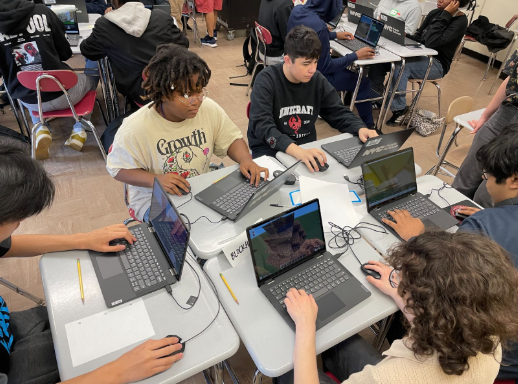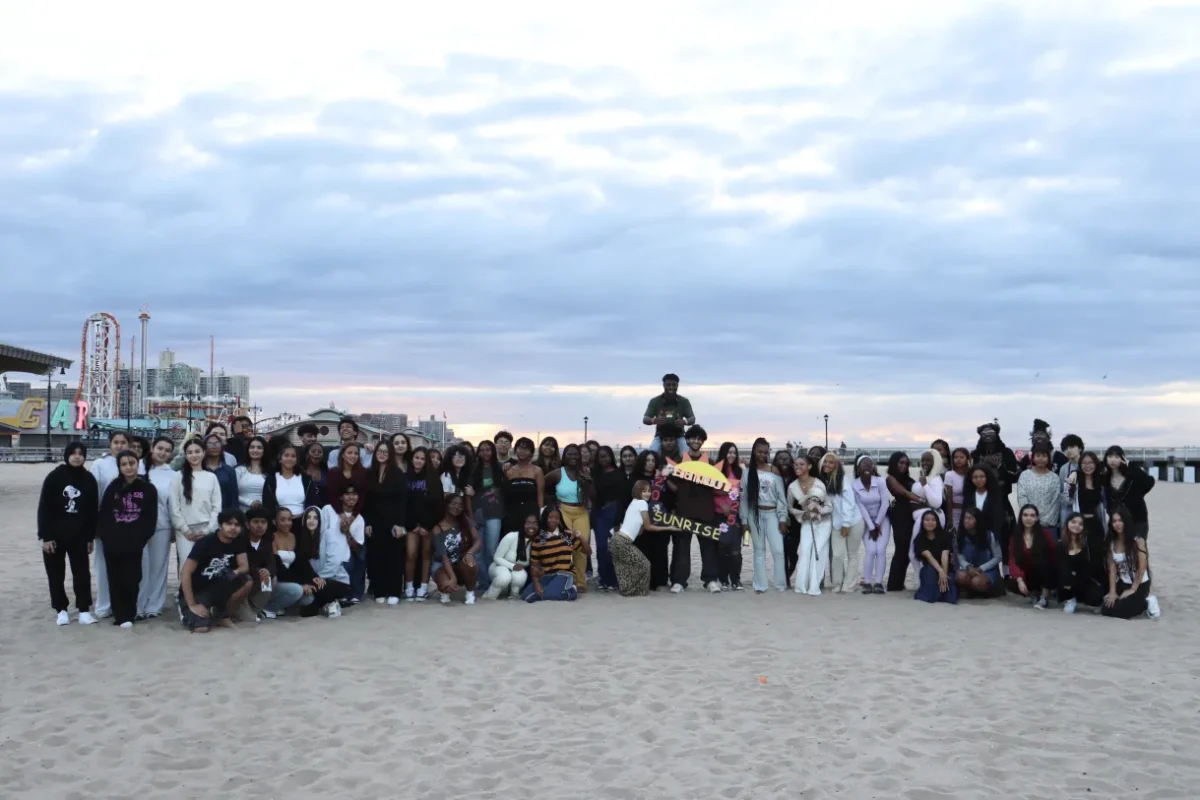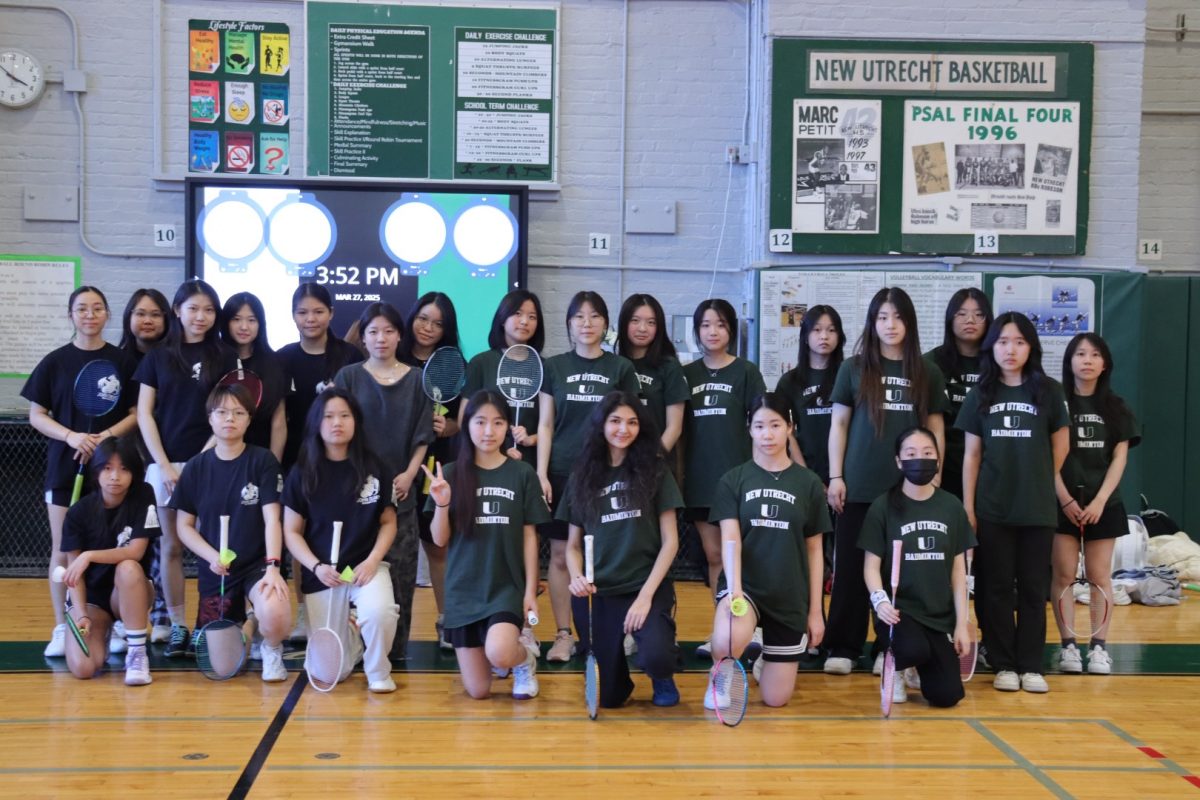Would banning cell phones in New York City schools help students study and concentrate better? Parents and teachers have recently become increasingly concerned about the possibility that students’ addiction to phones could cause them to become distracted in class. Mayor Eric Adams and Schools Chancellor David Banks are currently debating when to implement such a ban, recognizing that the city isn’t yet prepared to enforce a complete phone ban. Many are concerned about how cell phones may affect student’s ability to focus, even if some think they can be useful teaching tools.
As students at John Dewey High School increasingly find themselves distracted by their phones during class, teachers and parents are growing increasingly concerned. This has influenced a debate over whether the constant notifications and social media apps are blocking students’ ability to focus on their lessons. Many schools across the country, including those in California and South Carolina, have already implemented bans on cell phones. Similarly, in New York, a new policy set to take effect in 2025 will require students to turn in their phones in an effort to improve attention and behavior in the classroom.
Mr. Ehlenbach, a social studies teacher at JDHS, shared his perspective on the issue, stating, “There’s an over-reliance on simple tasks, teachers have a very difficult time managing with students, and cell phone use has become more addictive over the last 10 years. It causes cyberbullying and harm towards students, which causes them to record fights. A few of my ESL students use Google Translate to cheat off their assignments.” This shows the outgoing problems cell phones bring into the classroom, from distracting students to making it harder for teachers to maintain order and ensure academic honesty. Students are being affected negatively by cell phone use and it can make their mentality go down. Cell phones in the classroom can hurt students’ learning and behavior, making it harder for them to focus and do well in school.
While some teachers and parents don’t support the use of cellphones in school, there is a question as to whether this is the best idea. Many students agree that cell phones can help them benefit from learning because of the useful information and educational resources online. For example, when students apply to schools or jobs, it is easier to submit their applications using their phones. Some would advise teaching the students how to use cell phones more sensibly and productively in school rather than banning them.
The New York Times reported that critics have pointed out that such cellphone bans in schools might cause the largest negative impact on students who, besides being a student, also shoulder other adult responsibilities outside of school. Such as after-school jobs or taking care of sick family members. For the other group, critics feel these students may heavily use their cell phones in communication and arranging for those extra responsibilities that they take on, and thus a ban disproportionately affects them from continuing their responsibilities.
Another important factor is student safety. Some parents are concerned that if cell phones are banned, their children will not be able to call them in case of an emergency. This is especially a concern in large cities like New York. Parents and children rely on direct communication to stay abreast of the situation and each other in times of natural disasters or school lockdowns. Now, there are some families who believe that their kids become safer and the parents will feel better if they are able to call or text their children on cell phones. They feel it is very important to stay in touch, yet on the other hand, some people state that schools can provide other means for kids to communicate during emergencies and cell phones are simply not necessary. This proves that while banning cell phones may keep students focused, it will also make many students and parents feel less safe.
John Qiu, a senior at JDHS, expresses his concerns about a potential cell phone ban, saying, “It would be inconvenient to ban cell phones in school because everyone has gotten used to having the ability to send messages instantly and even paying for things with your phone.” He explained that phones have become an essential part of daily life for students, making it easier to handle tasks like staying in touch with family, managing schedules, and even buying lunch. “Phones being banned would inconvenience everyone who has gotten used to these things,” John said. For students like John, adapting to a school day without phones could feel like a step back from the conveniences they’ve come to rely on.
A ban on cell phones would disrupt students’ routines and limit their ability to manage important tasks. Without access to their phones, students at JDHS would face challenges such as checking important emails, staying updated on assignments, or keeping track of school events. Furthermore, they would lose the ability to maintain connections with family and friends, which many students rely on during the day for emotional support or urgent communication. This sense of disconnection could negatively impact their well-being and reduce the sense of community that phones help promote. By removing such an important tool, the ban would make it harder for students to handle their responsibilities effectively and maintain their social and academic networks.
In the coming months, schools will need to carefully consider the effects of a potential cell phone ban on their students. While some may feel anxious about losing access to their devices, this change could encourage students to engage more directly with their teachers and peers. It might also help them develop better critical thinking skills and study habits. As the discussion continues, it’s essential for teachers, students, and parents to collaborate in finding the best approach to support learning while acknowledging the role of technology in our lives. The decision about this ban will play a significant role in shaping how education is experienced in the future.














